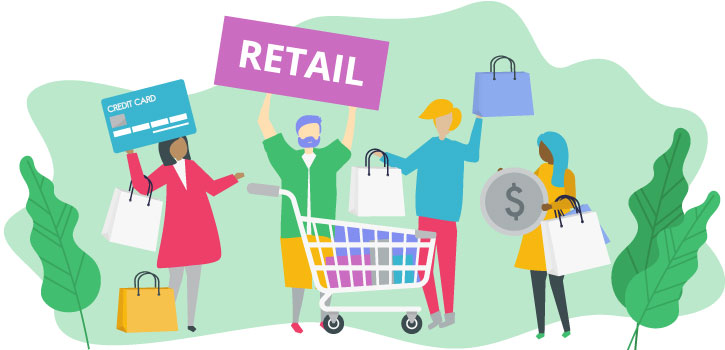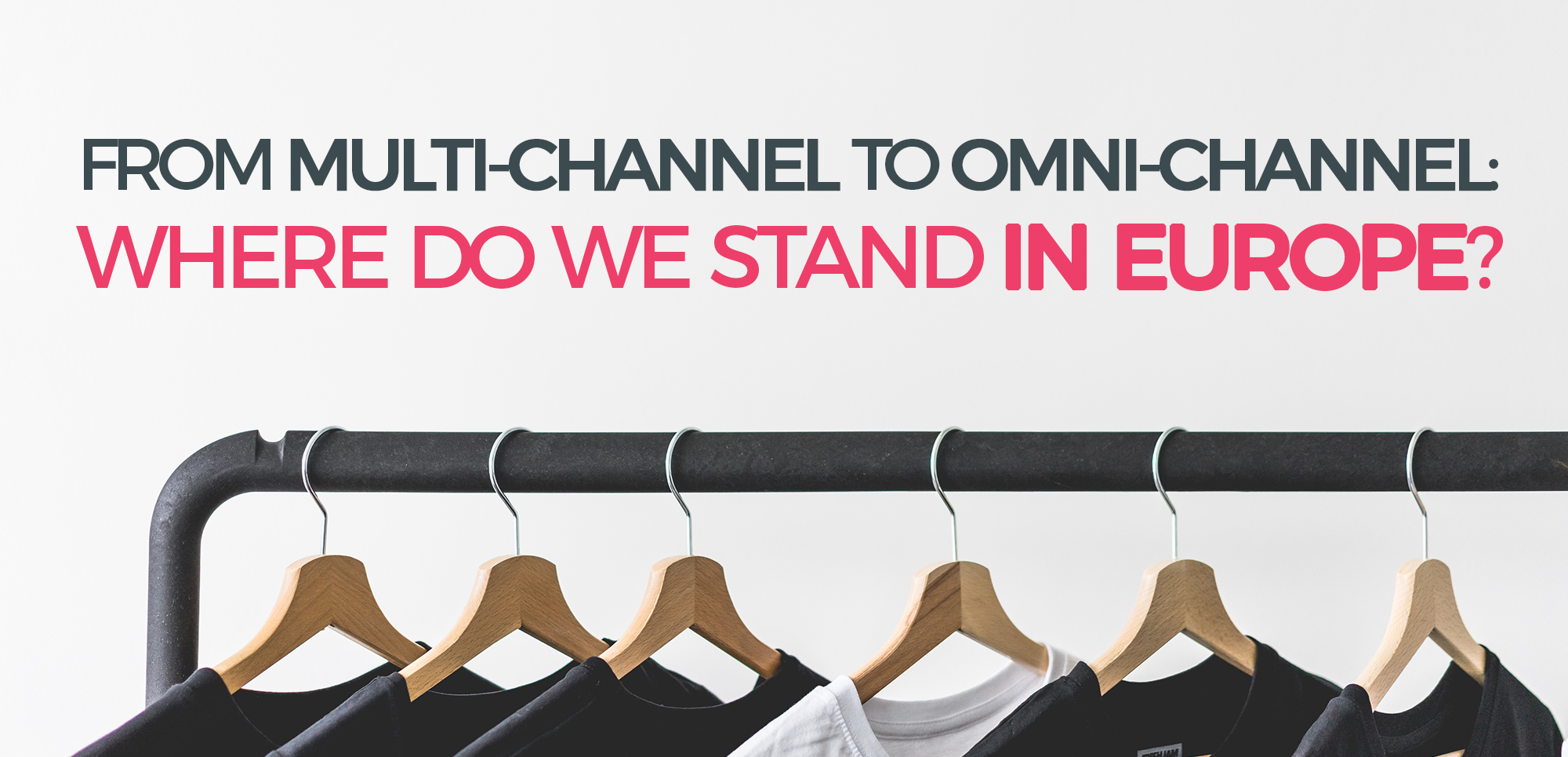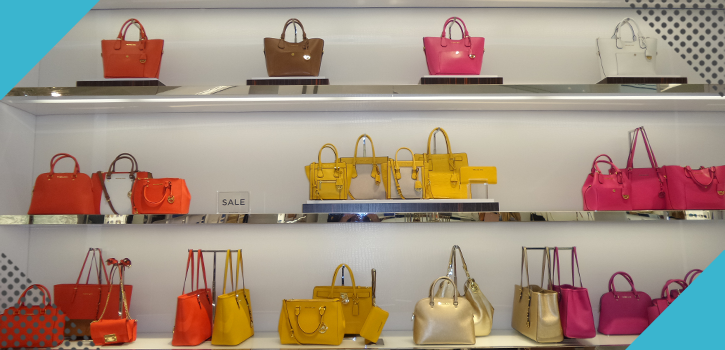As in years past, David Mingeon, Deputy CEO of Havas Paris, presented the results of the Shopper Observer study during the opening plenary session of Paris Retail Week. For those in attendance, this was the perfect chance to learn more about the benefits and advantages of physical stores, which are no longer just for showcasing products but are genuine ambassadors of their brands. As “Places of Truth,” stores must be environmentally friendly and efficient, while paving the way for a retail market that is dedicated to tackling society’s most important issues. David Mingeon and four CEOs discussed the new balance between physical and digital retail.
Looking for more detailed information about internationalization? Download our e-book
“Today’s retailers must be willing to change”
David Mingeon, Deputy CEO of HAVAS PARIS
Brands and sustainability
How has the retail sector addressed the need to protect the environment?
For some time now, consumers have been increasingly eager to protect the environment. Some of their efforts include “boycotting” brands with poor environmental records and refusing to purchase items which are packaged in plastic. These consumers are convinced that their consumption habits will have more of an impact on the future than the decisions made by politicians. To satisfy them, companies have no other choice but to change their methods of doing business. 60% of French consumers believe companies play a bigger role than the government when it comes to creating a better future.
Some companies have decided to take matters into their own hands. One such company is Le Bon Coin, France’s leading online marketplace which encourages its users to sort their waste. Buying used goods can offset the harmful effects which result from buying new goods. “8 million tons of CO2 can be prevented each year by purchasing second-hand goods instead of new ones,” declares Antoine Jouteau, CEO of Le Bon Coin. Other environmental pioneers include Maison Standards, which strives to avoid overstocking and develop the right practices when it comes to the environment, and Camif, whose commitment to responsible consumption is illustrated by its complete transparency about the composition of its products.
The sustainability trend has caused the second-hand market to skyrocket…
Sustainability is becoming more and more important to the buying process and the “second-hand” industry is booming. Today, 50% of all consumers report having purchased a used product during the last six months. This can be explained by the rise in online marketplaces such as Vinted, which is currently in 12th place in the FEVAD rankings. Second-hand goods are also appearing in stores that previously only sold new products, such as FNAC and Auchan.
We are entered a new era of retail where consumer behavior is totally different than it was only 5 years ago. If they wish to succeed, brands and retail chains must go against conventional wisdom by encouraging their customers to shop more intelligently and consume less.
In France, 80% of consumers believe businesses generate too much pollution, while 55% think it is possible to continue consuming as usual without destroying the environment.
Extreme measures
In today’s world, consumers also expect companies – in particular retailers – to take extreme measures to protect the environment.
Every pioneering company is extreme in its own way. Camif, for example, decided to boycott Black Friday, which according to its CEO Emery Jacquillat is a “period of overconsumption.” The company therefore shut down its website on the “holiday.” At Le Bon Coin, the goal has always been the same: increase the sales of second-hand goods. “By 2028, more used products will be sold than new ones,” asserts Antoine Jouteau, CEO of Le Bon Coin.
The comeback of offline shopping
Another major retail trend we’re witnessing is the remarkable comeback of offline shopping. 82% of French consumers believe that one of the highlights of the shopping experience is the ability to touch and try products before actually buying them. Physical stores are therefore once again all the rage, and in the long term may even attract more consumers than the Internet – which for some time was the ultimate retail revolution.
However, some retailers (such as Le Bon Coin) are less enthusiastic about the current phenomenon, which according to Antoine Jouteau is not at all sustainable. On the other hand, Emery Jacquillat of Camif – which only operates online – is not entirely against it. Although it is necessary to limit the number of returns for the sake of the planet, he also understands the importance of being able to try products before buying them. He therefore launched the company’s “At a Home Near You” service in 2016, allowing customers to test a couch in the home of a nearby consumer. Only physical stores can offer a real-life shopping experience!
Artificial intelligence in physical retail
Although 64% of French consumers believe AI can help retailers to better understand their needs, 81% fear the technology will make the shopping experience less personal. Nevertheless, these same consumers find AI useful when it comes to product recommendations and the delegation of purchasing authority.
But how do we actually use artificial intelligence? And is it really effective? According to Emery Jacquillat, AI is virtually nonexistent in Europe compared to other regions in the world. Europeans tend to see AI and the collection of data as intrusive and suspicious. He therefore refuses to use it in his products, for in his words, “technology is associated with planned obsolescence” and surveillance. The same goes for Uriel Karsenti, Founder and CEO of Maison Standards, who thinks companies may have much to lose by using artificial intelligence.
From code to concrete…
This brings us to our final retail trend for 2020. Physical stores are becoming increasingly attractive and taking great care to enhance their image. This can be seen in makeovers designed to improve the look and feel of a store as well as its overall experience. In fact, new physical stores are now inspired by retailers who started out with an online shop. 69% of French consumers think online brands are reinventing the physical retail store and that those brands which only operate online should open physical points of sale.
And it’s not just a store’s design that makes physical retail more effective than online shopping. Uriel Karsenti of Maison Standards reminds us that acquiring customers via the Internet is much more difficult than in person.
For Le Bon Coin, however, making the switch to physical retail would completely go against the brand’s DNA. However, Antoine Jouteau is open to joining forces with companies that have physical points of sale. Ditto for Emery Jacquillat of Camif, who would rather sell his goods in partner stores than open new stores of his own.
The message conveyed by David Mingeon and the other entrepreneurs at the plenary session was clear: we’re entering a new era where brands and consumers are increasingly concerned about a subject that is crucial to us all, namely the preservation of the environment. The world of retail may never be the same again.
Interested in international development? Discover how to accelerate your time-to-market or achieve rapid ROI by optimizing translation resources in our International Expansion e-book!







